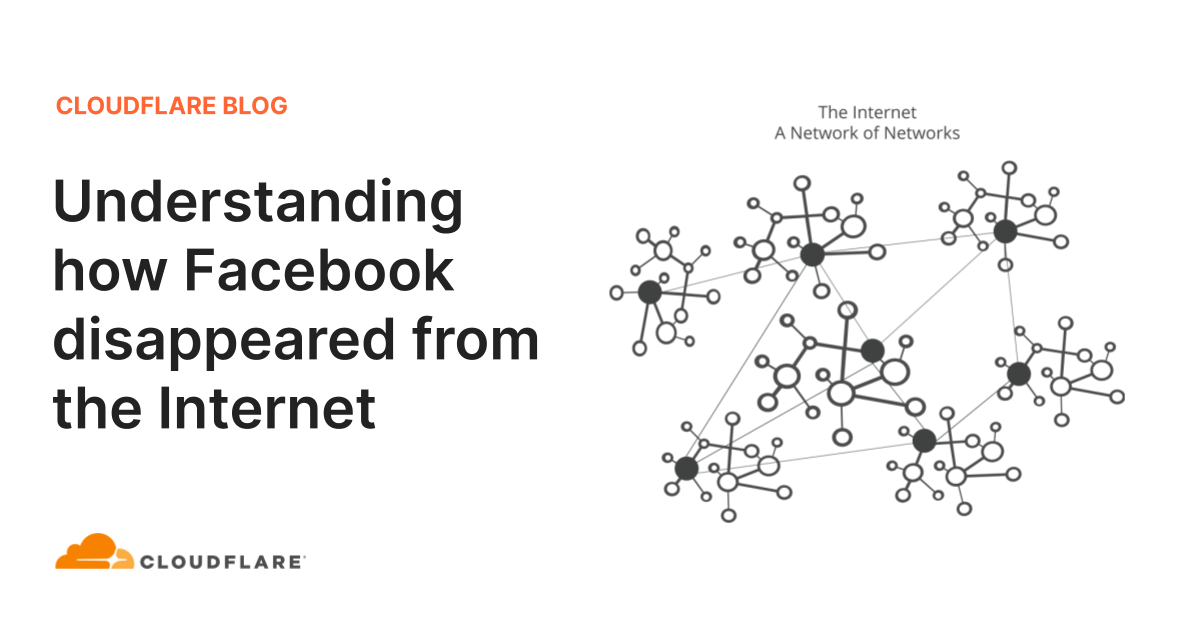One person like that
#bgp
4 Likes
2 Shares
BGP Stream is a free resource for receiving alerts about hijacks, leaks, and outages in the Border Gateway Protocol.
BGP is the routing protocol used on the Internet. BGPmon analyses hundreds of millions of BGP messages every day. Using this BGP data we can detect large scale outages and Hijacks. BGP incidents can cause significant havoc and as such Real-time monitoring for BGP incidents is a very important method to find indicators of a problem.
With BGP Stream, we use an automated process to cull the largest and most important outages, what type of outage it is, and which ASNs are involved and publish those updates for free to a Twitter feed and this site. It is important to us to provide this information free, in a real-time format, providing contextual information so network engineers and owners can respond to outages as quickly as possible
Группа MANRS (Mutually Agreed Norms for Routing Security), следящая за интернет-маршрутизацией, заявила о том, что Ростелеком начал перехватывать трафик Apple , перенаправляя его в свои сети. Все началось во вторник, 26 июля, когда сеть Ростелекома AS12389 анонсировала блок адресов 17.70.96.0/19, который является частью блока 17.0.0.0/8 сети Apple. Позже, этот блок был идентифицирован как AS714 APPLE-ENGINEERING.
Инцидент был обнаружен с помощью ресурса BGPStream.com. Известно, что данные пользователей Apple находились в сетях Ростелекома 12 часов, с 26 по 27 июля.
Apple никак не ответила на просьбу о комментарии и не сделала публичных заявлений по поводу перехвата своего сетевого трафика.
"Неясно, какие службы были затронуты этим инцидентом. Пока мы не получим более подробную информацию от Apple или других исследователей, мы можем только гадать", – говорит Афтаб Сиддики, один из членов MANRS.
Подробнее: https://www.securitylab.ru/news/533001.php.
Jim Cowie auf Twitter: „"a detailed 15th century map of the modern Internet, showing BGP routes and IXPs" https://t.co/bqaSKVhAyD“ / Twitter
#networking #bgp Hah!
https://twitter.com/jimcowie/status/1548084497760919555
"a detailed 15th century map of the modern Internet, showing BGP routes and IXPs" pic.twitter.com/bqaSKVhAyD
— Jim Cowie (@jimcowie) July 15, 2022
4 Likes
1 Shares
3 Comments

01.03.2022 Hacker nutzten unsicheres Routing aus
Wege des Internets sind unergründlich
Nein, das sind sie eigentlich nicht - jeder Endpunkt hat eine IP Adresse und die ist zumindest für den aktuellen Zeitpunkt eindeutig jemandem zugeordnet. Schwieriger ist es, zu erklären, wie man zu einem gegebenen Zeitpunkt, denn auch das kann sich jederzeit ändern, von einer Adresse zu einer anderen kommt.
Für dieses Routing gibt es Protokolle, also Vorschriften, welchen Weg ein Datenpaket aus Effizenzgründen zu nehmen hat. Will man jemandem die an ihn verschickten Pakete wegnehmen, so muss man 2 Dinge tun
- für die eigene IP-Adresse ein Zertifikat erstellen, welches glaubhaft eine andere Identität vortäuscht,
- das Routing Protokoll in dem Zeitraum des Angriffs so manipulieren, dass die Datenpakete an der eigenen Adresse zumindest vorbeikommen.
Der Angriff auf Klayswap
Über genau so einen Angriff berichtet Heise recht detailliert. Nutzer der südkoreanischen Krypto-Plattform Klayswap wurden am 3. Februar so um etwa 2 Millionen $ in Kryptowährungen erleichtert. Ein kleiner Beutezug und eigentlich nicht der Rede wert, außerdem hat Klayswap bereits zugesichert, die Betroffenen zu entschädigen.
Trotzdem lohnt sich die Lektüre der Details, denn damit stellt sich heraus, dass die Angreifer etwa 7 Monate daran gearbeitet haben, um die beiden oben beschriebenen Voraussetzungen zu erfüllen - die Erzeugung falscher Zertifikate für ihre eigenen Rechner und die Manipulation des Routing Protokolls BGP.
Wie bei vielen anderen Hacks, spielte wieder einmal eine trojanisierte Version der JavaScript-Bibliothek eine entscheidende Rolle. Deshalb sind wir bei Aktion FsA weiter froh, dass alle unsere Software ohne Java funktioniert und fast so schön und bunt aussieht wie andere.
Mehr dazu bei https://www.heise.de/news/Ungewoehnlicher-Krypto-Raubzug-erbeutet-Millionen-6496145.html
Link zu dieser Seite: https://www.aktion-freiheitstattangst.org/de/articles/7940-20220301-hacker-nutzten-unsicheres-routing-aus.htm
Link im Tor-Netzwerk: http://a6pdp5vmmw4zm5tifrc3qo2pyz7mvnk4zzimpesnckvzinubzmioddad.onion/de/articles/7940-20220301-hacker-nutzten-unsicheres-routing-aus.htm
Tags: #Cyberwar #Hacking #Trojaner #Java #Routing #Bitcoins #Kryptowährungen #IP-Adresse #BGP #Zertifikate #SSL #Verbraucherdatenschutz #Datenschutz #Datensicherheit #Datenpannen
2 Likes
1 Comments
20 Things I’ve Learned in my 20 Years as a #Software #Engineer
source: https://www.simplethread.com/20-things-ive-learned-in-my-20-years-as-a-software-engineer/
“How can you not know what #BGP is?” “You’ve never heard of #Rust?” Most of us have heard these kinds of statements, probably too often. The reason many of us love software is because we are lifelong learners, and in software no matter which direction you look, there are wide vistas of knowledge going off in every direction and expanding by the day. This means that you can spend decades in your career, and still have a huge knowledge gap compared to someone who has also spent decades in a seemingly similar role. The sooner you realize this, the sooner you can start to shed your imposter syndrome and instead delight in learning from and teaching others.
...
https://www.youtube.com/watch?v=zefaQgPqqac
#developer #programmer #coder #nerd #geek #economy #work #knowledge #project #management #wisdom
3 Likes
1 Comments
1 Shares
4 Likes
David Aparicio | AWS Infinidash Certified 🚀 auf Twitter: "Ceci n'est pas le #DNS (This Is Not a DNS) #facebookdown #BGP #YAML #DevOps #hugops #Facebook #instagramdown #whatsapp https://t.co/RUVFyTP7ip" / Twitter
https://twitter.com/dadideo/status/1445144677846487044
Ceci n'est pas le #DNS
— David Aparicio | AWS Infinidash Certified 🚀 (@dadideo) October 4, 2021
(This Is Not a DNS)#facebookdown #BGP #YAML #DevOps #hugops #Facebook #instagramdown #whatsapp pic.twitter.com/RUVFyTP7ip
6 Likes
La VRAIE raison du #FacebookDown 😭
https://www.youtube.com/watch?v=UdCmPZTVorw
#Facebook #BGP #DNS #Réseau #Internet
3 Comments
● NEWS ● #Techdirt ☞ Tone Deaf #Facebook Did Cripple VR Headsets When Borked #BGP Routing Took Down All Of Facebook https://www.techdirt.com/articles/20211005/11033447704/tone-deaf-facebook-did-cripple-vr-headsets-when-borked-bgp-routing-took-down-all-facebook.shtml
"Yesterday there was a big Facebook outage caused by #BGP . I’ve been vaguely interested in learning more about BGP for a long time, so I was reading a couple of articles." https://jvns.ca/blog/2021/10/05/tools-to-look-at-bgp-routes/
Cloudflare Blog: Understanding How Facebook Disappeared from the Internet
At 1658 UTC we noticed that Facebook had stopped announcing the routes to their DNS prefixes. That meant that, at least, Facebook’s DNS servers were unavailable. Because of this Cloudflare’s 1.1.1.1 DNS resolver could no longer respond to queries asking for the IP address of facebook.com or instagram.com.
4 Likes
...huch doch nicht, aber gut #bgp ein Protokoll fürs Routing hat noch mehr Auswirkungen. #facebookdown
golem.de/news/auch-what…
https://twitter.com/miradlo/status/1445102165983481858
Ups, also wirklich ein DNS-Problem. #dns #facebook #insta #whatsapp alles #down https://t.co/446lsUt3Q5
— Ute Hauth @miradlo (@miradlo) October 4, 2021

Weil facebook outage und so... also.. BGP eigentlich. Reformvorschlaege gibt es schon lange, also...
7 Likes
#Facebook, #Instagram, #WhatsApp, and #Oculus are down. Here’s what we know "The root cause of the worldwide outage appears to be a flubbed #BGP route update."
The party's on over at twitter@twitter.com:
https://twitter.com/Twitter/status/1445078208190291973
hello literally everyone
— Twitter (@Twitter) October 4, 2021
5 Likes
5 Comments
Facebook Faceplant
Sysadmin Haiku:
It's not DNS
There's no way it's DNS
...it was DNS.
Actually, BGP, and probably in such a way that Humans will have to Truck Roll to datacenters in order to fix.
3 Likes
1 Shares






